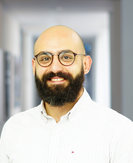OIDD Oldenburg Internet of Things (OIDD) Platform - Use Case Water
Motivation
In recent years, the city of Oldenburg has experienced a series of extreme weather events, including periods of severe flooding and extreme drought. This has presented the city with enormous challenges.
Although various stakeholders in the city of Oldenburg are already engaged in the collection of water-related data, there is currently no open, IoT-based data platform that consolidates this data and makes it accessible to third parties. The transfer project is an initiative designed to address this issue. The implementation of advanced sensor technology by the city and the ZLW, in conjunction with the incorporation of existing data sets from various sources, including those from the Oldenburg-Ostfriesischer Wasserverband (OOWV), into the OIDD platform, is intended to facilitate new opportunities for interoperable data processing and innovative collaboration among diverse stakeholders.
Goal
The objective of the project is to promote knowledge transfer between the Future Laboratory for Water (ZLW) and the Future Laboratory for Energy (ZLE). The aim is to develop and test an innovative Oldenburg Internet of Things platform (OIDD) for the city of Oldenburg in collaboration with the project partners.
In the context of our project, the OIDD platform will initially map a range of water-related use cases. The OIDD platform will serve as a central infrastructure to integrate various (sensor) data sources of the city of Oldenburg, identify potential risks and initiate appropriate countermeasures in the future as well as prepare decision support. The collected data can be visualized and utilized by decision-makers and citizens alike. The utilization of modern artificial intelligence methods facilitates the analysis and evaluation of the data, enabling the formulation of predictions and the identification of correlations.
Technologies
The technologies to be utilized in the project can be classified into three categories.
- Platform development: Development of the OIDD platform will be based on the technical foundation of the HIDD platform, which was developed as part of the “Hannover Internet of Things (HIDD)” project.
- Setup, use and integration of new sensor technology: This includes the integration of sensor technology and data from the IoT-based information system “Guerilla Sensing” of the departments “Software Engineering” and “System Software and Distributed Systems” of the University of Oldenburg, as well as setting up, using, and integrating new LoRaWAN sensor technology in the city of Oldenburg. The platform will also integrate external data from various sources, such as the OOWV.
- Use of artificial intelligence: AI will be used to analyze and evaluate integrated sensor data to recognize patterns, make predictions, and enable preventive measures.
Internal Leader
External Leader
ZLWScientific Director
https://uol.de/vlba
https://uol.de/se/
https://www.oldenburg.de/startseite/buergerservice/digitalisierung/stabsstelle-digitalisierung-und-nachhaltigkeit.html
https://www.uvn.digital/
www.oowv.de

Duration
End: 30.11.2026
Source of funding




